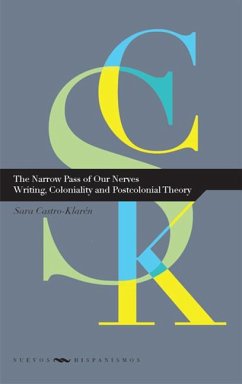The introduction of writing as a legacy of conquest in the Andes after the killing of the Inca Atahualpa in Cajamarca opens a new space of contention and negotiation for the postcolonial subjects in both Europe and America. The book analyzes, from the perspective of the coloniality of power, the cultural and political work that colonial subjects such as Garcilaso de la Vega, Inca and Guamán Poma are able to perform as they deploy writing in the power struggle of imperial cultural settings in order to establish a place in human memory for the legacy of their ancient culture and their own postcolonial position. This inquiry into the power of writing and the multiple forms of memory that constitute the Andean cultural milieu is also examined in relation to the rise of archeology in the nineteenth century. The book also engages in broad and particular ways postcolonial theory and its intersection with the Latin American thought.
Bitte wählen Sie Ihr Anliegen aus.
Rechnungen
Retourenschein anfordern
Bestellstatus
Storno

